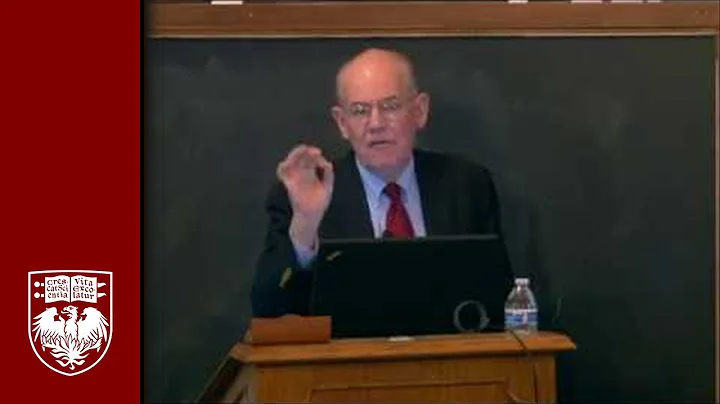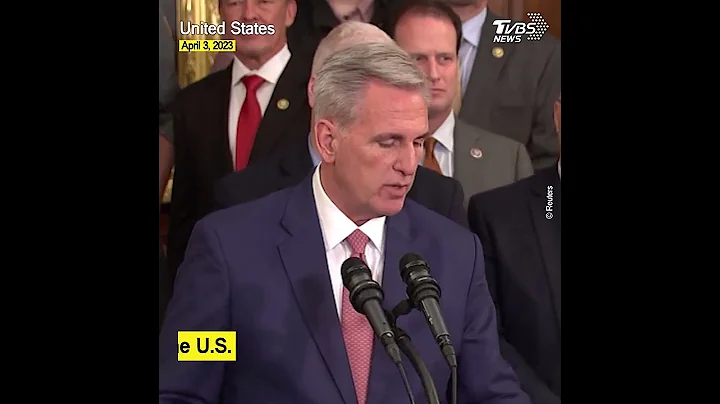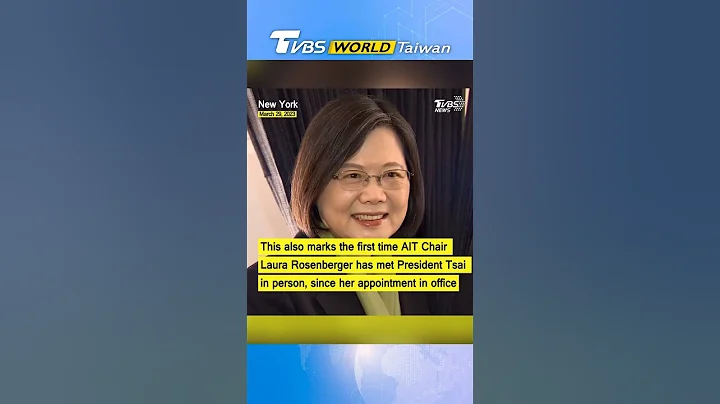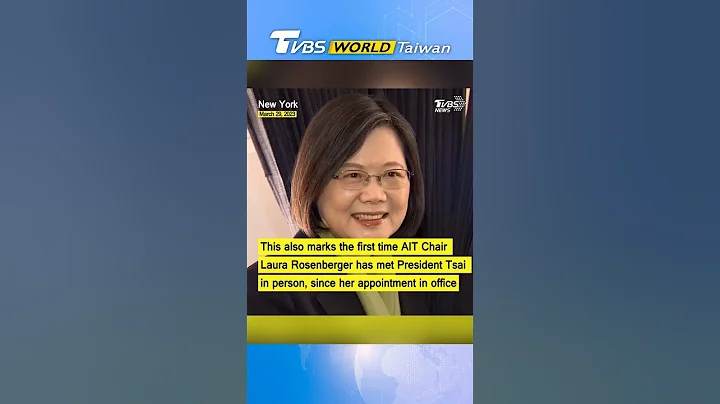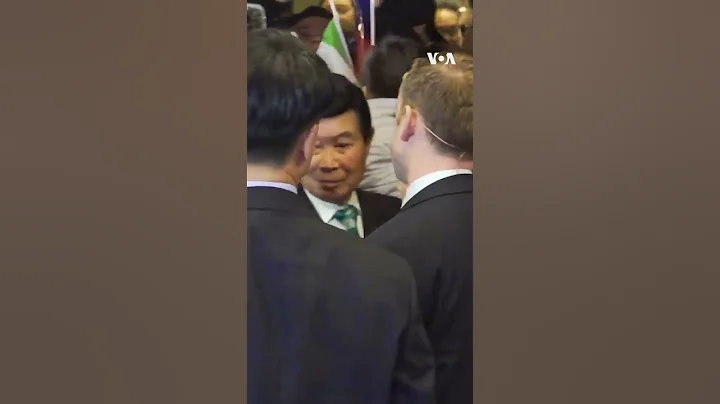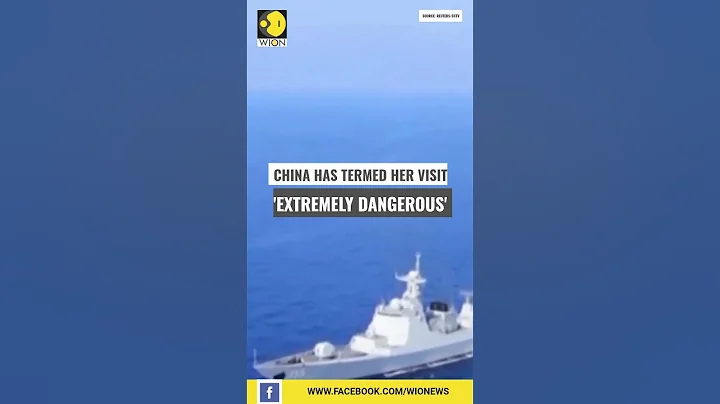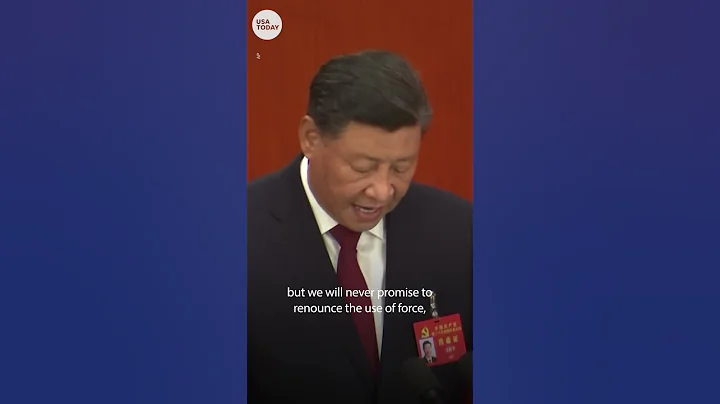Introduction: Editor's note: Mearsheimer is a famous American international relations scholar who holds a hawkish stance of "offensive realism". This article is a speech delivered by the author at the European University Institute of in Florence, Italy on June 16. He believes that the root of the crisis in Ukraine lies in the actions led by the United States, which turned Ukraine into a Western bastion on the Russian border. He also pointed out that the continued escalation of this conflict will have an impact on the global order and may also lead to a nuclear confrontation between major powers and trigger a global disaster.
[Text/Mearsheimer Translation/Li Biqi]
The war in Ukraine is a multi-faceted disaster, and this disaster is likely to get worse in the future. When a war is fought and won, little attention is paid to the reasons why it was fought, but when the consequences of the war are catastrophic, understanding how the war occurred becomes critical. People wonder: How did we end up in this dire situation?
I have witnessed this phenomenon twice in my life: the first time was Vietnam War and the second time was Iraq War . For both wars, the American people want to know how their country could have misjudged so seriously? Since the United States and its NATO allies played a key role in the Ukraine crisis and are now the main force in promoting the continuation of the war, I think it is appropriate to assess the West's responsibility for this disaster.
I will make two main arguments today.
The first point is that the United States bears the main responsibility for the occurrence of the war in Ukraine. I am not denying the fact that it was Putin who started the war. He is indeed responsible for Russia's war actions. I don't mean to excuse America's European allies, but they mainly follow the footsteps of and Washington on the Ukraine issue. My core point is that U.S. foreign policy toward Ukraine is viewed by Putin and other Russian leaders as an existential threat to Russia, and they have been saying this repeatedly for years. Specifically, I'm talking about the United States' insistence on integrating Ukraine into NATO, making it a Western bastion on Russia's borders. The Biden administration is unwilling to resolve conflicts between the United States and Russia through diplomatic means. In fact, in 2021, the United States once again promised to include Ukraine in NATO. Putin responded by invading Ukraine on February 24 this year.
Second, the Biden administration responded to the outbreak of war by doubling down on Russia. The United States and its Western allies are committed to defeating Russia quickly in Ukraine and using comprehensive sanctions to significantly weaken Russia. The United States does not want a diplomatic solution to the war, which means the war could drag on for months or even years. In the process, Ukraine, which has already been hit hard, will suffer even greater damage. In essence, the United States is toying with Ukraine. In addition, there is a risk of escalation in the war, as NATO could be dragged into the quagmire of war and nuclear weapons could be brought out and used. We are living in dangerous times.

Ukrainian refugees fleeing abroad (Source: UNHCR)
Let me now elaborate my argument in more detail, first by describing the common belief about the causes of the conflict in Ukraine.
Public opinion
The West generally believes that Putin is the chief culprit of the Ukraine crisis and the ongoing Russia-Ukraine war. In Western propaganda, he is portrayed as a monarch with imperial ambitions. They say he is bent on conquering Ukraine and other countries and establishing a Great Russia that is somewhat similar to the former Soviet Union. They believe that Ukraine is Putin's first target for hegemony, but not the last. As one scholar put it: "Putin is working toward an insidious long-term goal: to wipe Ukraine off the world map." If Putin really thinks so, Finland and Sweden will join NATO, as will the expansion of NATO Its military strength in Eastern Europe is entirely justified. After all, Russian imperial power had to be contained.
While this claim is repeated endlessly by the mainstream media and nearly every Western leader, there is no evidence to support it.The evidence presented by those who spread this common belief has little to do with Putin’s motivations for invading Ukraine. For example, some people emphasize that Putin has said that Ukraine is a "recent state" or not a "real state." However, this ambiguous statement does not prove that he chose to start a war because of this. Others say that Putin has said that he regards Russians and Ukrainians as "one nation" with a common history, but this is indeed a historical fact. Others pointed out that Putin called the collapse of the Soviet Union "the greatest geopolitical disaster of this century." However, Putin also said: "Whoever does not miss the Soviet Union has no conscience; whoever wants to return to the Soviet Union has no brains." Others pointed out that he declared in a speech: "Modern Ukraine was entirely created by Russia or, more precisely, was founded by the Russian Communist Party.” But as he said in that speech, referring to Ukraine’s independence today: “Of course, we cannot change the events of the past, but we must at least make it public. and honestly admit them.”
To prove that Putin is determined to conquer all of Ukraine and integrate it into Russia, it is necessary to prove these things: first, that he believes that this is a necessary goal; a feasible goal; third, he intends to pursue it. There is currently no evidence in the public record that Putin was considering or even intending to end Ukraine's history as an independent country and make it part of Greater Russia when he sent troops into Ukraine on February 24.
In fact, there is a lot of important evidence that Putin recognizes Ukraine as an independent country. On July 12, 2021, in an article about Russian-Ukrainian relations, Putin told the Ukrainian people: "You want to build a country of your own: I very much support it!" Although those who hold the aforementioned general view often regard this as Evidence of his imperial ambitions. Regarding how Russia should treat Ukraine, he wrote: "There is only one answer: respect." He ended the long article by writing: "As for what kind of country Ukraine will become? - This is for its citizens to decide for themselves. "It's difficult to connect these claims with claims that he wants to integrate Ukraine into a greater Russia.
In the article on July 12, 2021, and in an important speech on February 21 this year, Putin emphasized that Russia accepted "the new geopolitical reality formed after the collapse of the Soviet Union." He reiterated this view for the third time when he announced on February 24 that Russia would attack Ukraine. In particular, he declared that "it is not our plan to occupy Ukrainian territory" and made it clear that he respects Ukraine's sovereignty unless "Ukraine's current territorial scope will always threaten Russia's security, development and even its existence." So in fact, Putin did not He does not want to annex Ukraine; he mainly wants to ensure that Ukraine will not become a "springboard" for Western aggression against Russia. I will talk about this in detail later.
Some might say that Putin lied about his motivations for starting the war and that he was trying to hide his imperial ambitions. I wrote a book about lying in international politics: Why Leaders Lie: The Truth About Lying in International Politics. In fact, I know clearly that Putin did not lie. First, one of my key findings is that leaders lie less often to each other; they lie more often to their own people. Regarding Putin, no matter what people think of him, he has no previous history of lying to other leaders. While some assert that he lied frequently and was an untrustworthy leader, there is little evidence that he also lied to foreign populations. In addition, he has publicly stated his views on Ukraine on many occasions over the past two years, and he has always emphasized that his main focus is Ukraine's relations with the West, especially its relationship with NATO. He has never suggested that he wants Ukraine to become part of Russia. If this behavior was all part of a design in his vast world of lies, it was the first time ever.
Perhaps the best evidence that Putin is not bent on conquering and absorbing Ukraine is Moscow's military strategy from the outset. Russian troops are not trying to conquer all of Ukraine.If you want to conquer the entire Ukraine, you will need to adopt the classic blitzkrieg strategy. Ground armored forces, with the cooperation of aviation, will quickly conquer the entire Ukraine. However, Russia did not intend to use this strategy at the beginning, because the total number of troops it sent at the beginning was only 190,000 soldiers, which was too small to conquer and occupy Ukraine. After all, Ukraine is not only the largest country between the Atlantic Ocean and Russia, but also has a population of over 40 million. As I guessed, Russia is pursuing a limited target strategy. It only wants to capture or threaten Kiev and conquer large areas of territory in eastern and southern Ukraine. In short, Russia did not have the ability to conquer the entire Ukraine at that time, let alone other countries in Eastern Europe.

The Russian army lacks troops and relies on pro-Russian armed forces in Eastern Ukraine to fight (Source: Reuters )
As Ramzy Mardini observed, another explanation that Putin only wants to achieve limited goals is that , there is no evidence that Russia is preparing to cultivate a puppet government in Ukraine, cultivate pro-Russian leaders in Kiev, or take any political measures that would make it possible for the puppet government to occupy the entire Ukraine and eventually integrate it into Russia.
Going one step further, Putin and other Russian leaders must have learned from Cold War that in an era of nationalism, occupying other countries will always get you into trouble. The Soviet Union's tragic experience in Afghanistan is an obvious example, but what is more relevant to the current Russia-Ukraine issue is Moscow's relationship with its allies in Eastern Europe. The Soviet Union maintained a huge military presence in Eastern Europe and interfered in the internal affairs of almost every country in the region. However, these allies have often become a thorn in Moscow's side. The Soviet Union suppressed a major rebellion in East Germany in 1953, then invaded Hungary in 1956 and Czechoslovakia in 1968 to keep them within the Warsaw Pact. 1956, 1970 and 1980-1981 In the past few years, serious unrest has occurred in Poland . Although these incidents were quelled by Polish authorities, they served as a reminder that Soviet intervention might be necessary. Albania Romania and Yugoslavia often caused trouble for Moscow, but Soviet leaders tended to tolerate their misdeeds because their positions were not good enough for NATO to deter Russia.
So what does Russia think of Ukraine now? It can be seen from Putin's article on July 12, 2021 that he understood at the time that nationalist sentiment in Ukraine was very strong, and since 2014, the Donbas War had greatly harmed the relationship between Russia and Ukraine. Putin must have known that Ukrainians would not welcome Russian offensive forces with open arms, and that it would be a difficult task even if Russia had the necessary power to conquer all of Ukraine, which Russia does not.
Finally, it is worth noting that from the time Putin came to power in 2000 until the Ukraine crisis first broke out on February 22, 2014, few people felt that Putin had imperial ambitions. In fact, the Russian leader was an invited guest at the NATO summit in Bucharest in April 2008, when NATO announced that Ukraine and Georgia would definitely become members. Putin expressed objections to this position at the time, but that mattered little in the United States. Because in the view of the United States, Russia is too weak to prevent further NATO expansion, just as it was too weak to prevent NATO expansion in 1999 and 2004.
On a related note, it is important to note that prior to February 2014, NATO expansion was not intended to contain Russia. At that time, Russia's military strength was still weak, and Moscow did not have the ability to pursue Baathist policies in Eastern Europe. Notably, Michael McFaul, the former U.S. ambassador to Moscow, noted that Putin's occupation of Crimea was not planned before the 2014 crisis; it was simply a response to the overthrow of Ukraine's pro-Russian leader. An impulsive act of coup.In short, NATO's eastward expansion is not to contain the Russian threat, but to extend the liberal international order to Eastern Europe, making the entire European continent look like Western Europe .

The Square Revolution broke out in Kiev at the end of 2013 (Source: Reuters)
It was not until the Ukrainian crisis broke out in February 2014 that the United States and its allies suddenly began to describe Putin as an extremely dangerous leader with imperialist ambitions, and Russia is portrayed as a powerful military threat that must be contained. What caused this shift? This new rhetoric aims to achieve the fundamental goal of being able to blame Putin for the outbreak of the crisis in Ukraine. And now, as the Ukraine crisis has turned into an all-out war, it is important to ensure that in this disastrous turn of events, only Putin is blamed. This blame game explains why Putin is now widely described in the West as an imperialist, even though there is little evidence to support this view.
Let’s now look at the real causes of the crisis in Ukraine.
The real roots of the conflict
The roots of the crisis in Ukraine lie in the actions led by the United States, which have turned Ukraine into a Western bastion on the Russian border. This strategy of the West has three aspects: integrating Ukraine into the EU, turning Ukraine into a pro-Western liberal democracy, and most importantly, integrating Ukraine into NATO. The plan was launched at NATO's annual summit in Bucharest in April 2008, when the alliance announced that Ukraine and Georgia "will become NATO members." Russian leaders immediately responded angrily, making clear that they viewed the decision as an existential threat and that they had no intention of allowing the two countries to join NATO. According to a respected Russian journalist, Putin was "livid" and warned that "if Ukraine wants to join NATO, it can only do so if it loses Crimea and its eastern regions. Ukraine will simply fall apart." ".
William Burns is now CIA director but he was the U.S. ambassador to Moscow at the time of the Bucharest summit and he wrote a memo to then-Secretary of State Condoleezza Rice succinctly describing Russia Thoughts on the matter. In his words, "Ukraine's membership in NATO is the most serious red line in the eyes of the Russian elite (not just Putin). In more than two and a half years, through conversations with key Russian figures - from to the Kremlin From the idiots in the dark corners to Putin’s most strident liberal critics – I have yet to find anyone who doesn’t see Ukraine joining NATO as a direct challenge to Russian interests,” he said. ...Throwing down a strategic gauntlet. Russia will respond today. Russia-Ukraine relations will enter a deep freeze...This will create excellent opportunities for Russian intervention in Crimea and eastern Ukraine."
Of course. Burns is not the only one among U.S. policymakers who understands that allowing Ukraine to join NATO is fraught with danger. In fact, at the Bucharest summit, both German Chancellor Merkel and French President Sarkozy opposed urging Ukraine to join NATO because they knew it would alarm and anger Russia. Merkel recently explained her objections. "I am very sure...Putin will not let this happen. In his view, this will be a declaration of war."

Russia, France and Germany reached the Minsk Agreement in 2015 (Source: Kremlin)
However, the Bush administration was not concerned about Moscow's "most serious red lines" and pressured the leaders of France and Germany to agree to a public statement declaring that Ukraine and Georgia would eventually join the alliance.
Unsurprisingly, the US-led effort to integrate Georgia into NATO led to war between Georgia and Russia in August 2008 - just four months after the Bucharest summit. However, the United States and its allies continue to advance plans to turn Ukraine into a Western bastion on Russia's borders.These actions culminated in a major crisis in February 2014, when a U.S.-backed uprising led Ukraine's pro-Russian president, Yanukovych, to flee Ukraine. Pro-American Prime Minister Yatsenyuk replaced Yanukovych. Russia responded by seizing Crimea from Ukraine and backing a civil war between pro-Russian separatists and the Ukrainian government in Ukraine's eastern Donbass region.
People often hear this statement: In the eight years from the outbreak of the Ukraine crisis in February 2014 to the start of the war in February 2022, the United States and its allies paid little attention to integrating Ukraine into NATO. In fact, this problem has already been solved, so the expansion of NATO cannot be an important cause of the escalation of the crisis in 2021 and the subsequent war that broke out earlier this year. This statement is wrong. In fact, the West responded to the events of 2014 by doubling down on its existing strategy to draw Ukraine further into NATO. The United States and its allies began training Ukrainian troops in 2014, and over the next eight years an average of 10,000 soldiers were trained each year. In December 2017, the Trump administration decided to provide "defensive weapons" to Kyiv. Other NATO countries soon joined in, sending more weapons to Ukraine.
The Ukrainian army has also begun to participate in joint military exercises with NATO forces. In July 2021, Kiev and Washington jointly held the "Operation Sea Breeze" (Operation Sea Breeze) exercise, a naval exercise held in the Black Sea, including the navies of 31 countries, and directly targeting Russia. Two months later, in September 2021, Ukrainian forces led Rapid Trident 21, which the U.S. Army described as “designed to enhance coordination among allies and partners to demonstrate The troops are prepared for annual exercises to respond to any crisis." NATO's arming and training of Ukrainian forces goes a long way toward explaining why Ukraine has performed so well in the face of Russian forces in its current war. As one headline in the Wall Street Journal put it, “The Secret to Ukraine’s Military Success: Years of NATO Training.”

The US military trains the Ukrainian army (Source: US Army)
In addition to NATO's efforts to make the Ukrainian army a more powerful fighting force, the political situation surrounding Ukraine's membership of NATO and its integration into the West has changed in 2021. Both Kyiv and Washington have new enthusiasm for pursuing these goals. President Zelensky has never shown enthusiasm for integrating Ukraine into NATO. He was elected in March 2019 on a platform calling for cooperation with Russia to solve the current crisis, but he reversed course in early 2021 and not only accepted NATO's expansion has also taken a tough stance against Moscow. He has taken a series of actions - including shutting down pro-Russian television stations and accusing a Putin confidant of treason - that are sure to anger Moscow.
President Biden, who took office in the White House in January 2021, has long been committed to integrating Ukraine into NATO and has an extremely hawkish stance on Russia. As expected, on June 14, 2021, NATO issued the following communiqué at its annual summit in Brussels:
“We reaffirm the decision taken at the 2008 Bucharest Summit that Ukraine will become a member of the Alliance, a member The Membership Action Plan is an integral part of that process; we reiterate all elements of that decision and subsequent decisions, including that each partner will be judged on its own merits and we firmly support Ukraine’s right to decide. own future and foreign policy course without interference from the outside world.”
On September 1, 2021, Zelensky visited the White House, and Biden made it clear that the United States “firmly supports Ukraine’s Euro-Atlantic vision.” Then on November 10, 2021, Secretary of State Blinken and his Ukrainian counterpart Dmytro Kuleba signed an important document, the "U.S.-Ukraine Strategic Partnership Charter." The document states that the parties aim to "underline...the commitment to the implementation of deep and comprehensive reforms required for Ukraine's full integration into European and Euro-Atlantic institutions."The document not only explicitly builds on “the commitments made by Presidents Zelensky and Biden to strengthen the Ukraine-U.S. strategic partnership,” but also reaffirms U.S. commitments to the 2008 Bucharest Summit Declaration.
In short, there is no doubt that starting from the beginning of 2021, Ukraine began to move rapidly towards joining NATO. Even so, some supporters of this policy argue that Moscow should not worry because "NATO is a defensive alliance and does not pose a threat to Russia." But that’s not what Putin and other Russian leaders think about NATO; it’s what they think that matters. There is no doubt that Ukraine’s membership of NATO remains Moscow’s “most serious red line.”
In response to this growing threat, Putin stationed increasing numbers of Russian troops on Ukraine's borders from February 2021 to February 2022. His aim is to coerce Biden and Zelensky to change course and stop their efforts to integrate Ukraine into the West. On December 17, 2021, Moscow sent letters to the Biden administration and NATO respectively, requesting written guarantees: 1. Ukraine will not join NATO; 2. It will not deploy offensive weapons near the Russian border; 3. Since 1997 NATO troops and equipment entering Eastern Europe will be transferred back to Western Europe.
Putin made many public statements during this period, leaving little doubt that he viewed NATO expansion into Ukraine as an existential threat. Speaking before a defense committee on December 21, 2021, he said: “What they are doing, or trying to do, or planning to do in Ukraine is not thousands of kilometers away from our country’s borders. This is right here. On our doorstep. They have to understand that we have no place to retreat. Do they really think we don't see these threats? Or do they think we will stand by and watch the threats to Russia emerge?" Two months later, in 2022? At a press conference on February 22, 2016, just days before the war began, Putin said: "We are firmly opposed to Ukraine joining NATO because it poses a threat to us, and we have arguments to support this. I have been in this hall "He talked about this many times." He then made it clear that he recognized that Ukraine was becoming a de facto member of NATO. He said that the United States and its allies "continue to import large quantities of modern weapons to the current authorities in Kiev." He went on to say that if it does not stop this practice, Moscow "will face an 'anti-Russia' armed to the teeth. This is absolutely unacceptable."
Putin's logic should make sense to the United States, because the United States It has long adhered to the Monroe Doctrine, a principle that stipulates that no distant power is allowed to deploy any military force in the Western Hemisphere.
I might note that in all of Putin's public statements in the months leading up to the war, there was not a shred of evidence that he was considering conquering Ukraine and making it part of Russia, let alone attacking other countries in Eastern Europe. Other Russian leaders – including the defense minister, foreign minister, deputy foreign minister and Russia’s ambassador to Washington – also highlighted the key role of NATO expansion in creating the crisis in Ukraine. Foreign Minister Lavrov made this point succinctly at a press conference on January 14, 2022, saying: "The key to everything is to ensure that NATO does not expand eastward."
Despite this, Lavrov Efforts by Trump and Putin to get the United States and its allies to abandon Ukraine as a bastion of the West on Russia's border have completely failed. Secretary of State Antony Blinken responded to Russia's request in mid-December by saying simply: "No change. There will be no change." Putin then launched an invasion of Ukraine to eliminate what he saw as a threat from NATO.
Where are we now and where are we going?
The war in Ukraine has been going on for nearly four months, and I would now like to offer some thoughts on what has happened so far and where the war might be heading. I will discuss three specific issues: first, the outcome of the war in Ukraine; second, the possibility of escalation of the war, including a nuclear escalation; and third, the possibility of ending the war in the foreseeable future.
This war is an unmitigated disaster for Ukraine.I mentioned before that Putin made it clear in 2008 that Russia would invade Ukraine to prevent it from joining NATO. He is delivering on that promise. Russian troops have conquered 20% of Ukraine's territory, destroying and severely damaging many Ukrainian towns. More than 6.5 million Ukrainians have fled the country, while more than 8 million are internally displaced. Thousands of Ukrainians - including innocent civilians - were killed or seriously injured, and the Ukrainian economy was thrown into chaos. The World Bank estimates that Ukraine’s economy will shrink by nearly 50% by 2022. It is estimated that Ukraine has suffered approximately $100 billion in damage and will need nearly $1 trillion to rebuild the country. Meanwhile, Kyiv needs about $5 billion in monthly aid to keep the government functioning.
Furthermore, Ukraine has little hope of repurposing its ports in the Sea of Azov and Black Sea in the short term. Before the war, approximately 70% of all Ukrainian imports and exports—and 98% of all grain exports—passed through these ports. This is the basic situation after less than 4 months of fighting. It's terrifying to think about what Ukraine would look like if this war dragged on for a few more years.
So what are the chances of negotiating a peace deal and ending the war in the coming months? I'm sorry to say that I don't think this war will end soon, a view shared by prominent policymakers such as Chairman of the Joint Chiefs of Staff General Mark Milley and NATO Secretary General Stoltenberg. The main reason for my pessimism is that both Russia and the United States are determined to win the war and it is impossible to reach a win-win agreement. More specifically, from Russia's perspective, the key to solving the problem is to make Ukraine a neutral country and abandon Ukraine's integration with the West. But this outcome is unacceptable to a large part of the Biden administration and the U.S. foreign policy establishment because it would represent a victory for Russia.
Ukrainian leaders certainly have agency, and there are hopes that they will push for neutralization to prevent further harm to their country. Indeed, Zelensky briefly mentioned this possibility early in the war, but he never seriously acted on it. In any case, the chances of Kyiv pushing for neutrality are slim because Ukraine's ultranationalists wield a lot of political power and are completely unwilling to give in to any Russian demands, especially those that force Ukraine to form political alliances with the outside world. Require. The Biden administration and countries on NATO's eastern flank - such as Poland and the Baltic states - are likely to back Ukraine's ultranationalists on the issue.

Polish nationalists support Ukraine (Source: AFP)
More complicated is what to do with the vast swaths of Ukrainian territory that Russia has conquered since the war began, and the fate of Crimea? It’s hard to imagine Moscow voluntarily giving up any of the Ukrainian territory it now occupies, let alone all of it, since Putin’s territorial goals are likely to be different now than they were before the war. At the same time, it is equally unimaginable that any Ukrainian leader would accept a deal that would allow Russia to retain any Ukrainian territory except Crimea. I hope I'm wrong, but that's why I don't see an end to this devastating war.
Let me now turn to the issue of escalation of war. International relations scholars generally believe that protracted wars have a strong tendency to escalate. Over time, other countries may be drawn into the fighting and the level of violence may increase. The possibility of this happening in the war in Ukraine exists. The United States and its NATO allies are at risk of being drawn into the fighting, and although they have waged a proxy war against Russia, they have so far been able to avoid directly entering the war. There is also the possibility that nuclear weapons could be used in Ukraine, possibly even leading to a nuclear conflict between Russia and the United States. The fundamental reason these outcomes are possible is that the stakes are so high on both sides that neither can afford to fail.
I have emphasized before that Putin and his deputies view Ukraine's joining the West as an existential threat to Russia that must be eliminated. In practice, this means that Russia must win the war in Ukraine. Failure is unacceptable.The Biden administration, on the other hand, has emphasized that its goal is not only to decisively defeat Russia in Ukraine but also to use sanctions to cause massive damage to the Russian economy. U.S. Defense Secretary Austin emphasized that the goal of Western countries is to weaken Russia so that it cannot invade Ukraine again. In essence, the Biden administration wants to remove Russia from the ranks of great powers. At the same time, President Biden himself called Russia's war in Ukraine a "genocide" and accused Putin of being a "war criminal" who should be put on a "war crimes trial" after the war. Such rhetoric did little to help negotiate an end to the war. After all, how do you negotiate with a country that commits genocide?

The United States uses SWIFT system to sanction Russia (Source: SWIFT Community)
The United States' policy has two major consequences. First, it greatly amplifies the existential threat Moscow faces in this war and must itself win in this proxy war. This means that the United States must defeat Russia. The Biden administration is now so invested in the war in Ukraine — both materially and rhetorically — that a Russian victory would represent a devastating defeat for Washington.
Obviously, neither side can win. Moreover, one side is likely to lose miserably. If U.S. policy succeeds and the Russians lose to the Ukrainians on the battlefield, Putin may resort to nuclear weapons to save the day. U.S. Director of National Intelligence Haines told the Senate Armed Services Committee in May that this was one of two scenarios that could lead to Putin potentially using nuclear weapons in Ukraine. For those who think this is unlikely, remember that NATO also planned to use nuclear weapons in similar situations during the Cold War. If Russia uses nuclear weapons in Ukraine, although we don’t know how the Biden administration will respond, it will certainly face tremendous counterattack pressure, thereby increasing the possibility of a nuclear war between major powers. There is a perverse paradox at work here: the more successful the United States and its allies are in achieving their goals, the more likely it is that the war will turn nuclear.
Let’s switch gears a bit and ask what would happen if the United States and its NATO allies failed, meaning the Russians defeated the Ukrainian military, and the Kiev government would have to engage in negotiations to come up with a plan to A peace deal that could potentially save the country. In this case, the United States and its allies will face tremendous pressure to become more deeply involved in the war. Although it is unlikely that the US or Polish troops will be involved in the battle, it is not impossible, and then NATO will go to war with Russia. According to Haines, this is another situation in which the Russians might resort to nuclear weapons. It is difficult to pinpoint exactly how events would unfold if this occurred, but there is no doubt that the war would likely escalate to the point of using nuclear weapons. Just thinking about this possibility sends chills down your spine.
This war may have had other disastrous consequences that I cannot discuss in detail due to time constraints. For example, there is reason to believe that war will cause a world food crisis and millions of people will die from famine. World Bank President David Malpass believes that if the war in Ukraine continues, we will face a global food crisis that is a "human catastrophe".
Moreover, relations between Russia and the West have broken down so completely that it will take many years to repair them. At the same time, this deep hostility will exacerbate global instability, especially in Europe. Some would say there is a silver lining: relations between Western countries have improved significantly as a result of the war in Ukraine. This is true for the moment, but beneath the surface improvements lie deep cracks that are bound to resurface over time. For example, relations between Eastern and Western European countries may deteriorate as the war drags on because their interests and perceptions of the conflict diverge.
Finally, the Russia-Ukraine conflict is already wreaking havoc on the global economy, and the situation is likely to get worse as time goes on. JPMorgan CEO Jamie Diamond says we should be prepared for an economic "typhoon."If he is right, these economic shocks will affect the politics of every Western country, undermining liberal democracy and strengthening its opponents on the left and right. The consequences of the Russia-Ukraine war will be felt around the world, not just in Western countries. “The ripple effects of the conflict are causing humanity to suffer far more than it can sustain,” the United Nations said in a recent report. “This war, in all its aspects, is exacerbating the consequences of at least a generation of An unprecedented global cost-of-living crisis is damaging lives, livelihoods and our aspirations for a better world by 2030."
Conclusion
In short, the conflict unfolding in Ukraine is a huge disaster, as I have seen. As noted at the beginning of the talk, it will lead people around the world to find out why. Those who think in terms of facts and logic will quickly discover that the United States and its allies bear primary responsibility for this conflict. The United States' decision in April 2008 to include Ukraine and Georgia in NATO was destined to lead to conflict with Russia. The Bush administration was the primary architect of this disastrous decision, but the Obama, Trump, and Biden administrations were at every turn, and America's allies dutifully followed Washington's lead. Although Russian leaders have made it abundantly clear that integrating Ukraine into NATO would cross the “ultimate red line,” the United States refuses to accommodate Russia’s deepest security concerns and instead moves ruthlessly to make Ukraine a Western bastion on Russia’s borders.
The sad truth is that if the West had not pursued NATO expansion into Ukraine, a war in Ukraine would be unlikely today and Crimea would still be part of Ukraine. In essence, Washington played a central role in leading Ukraine on a path to destruction. History will judge the United States and its allies harshly for their extremely foolish policies toward Ukraine. Thanks.
This article is an exclusive manuscript of Observer.com. The content of the article is purely the author's personal opinion and does not represent the platform's opinion. It may not be reproduced without authorization, otherwise legal liability will be pursued. Follow the Observer.com WeChat guanchacn and read interesting articles every day.


![The death of ideology | John Mearsheimer [Full Interview] - DayDayNews](https://i.ytimg.com/vi/ClitqYW8HVk/hq720.jpg?sqp=-oaymwEcCNAFEJQDSFXyq4qpAw4IARUAAIhCGAFwAcABBg==&rs=AOn4CLBUi8WgtVQOUDTsLpllrIHCwtaL8w)

